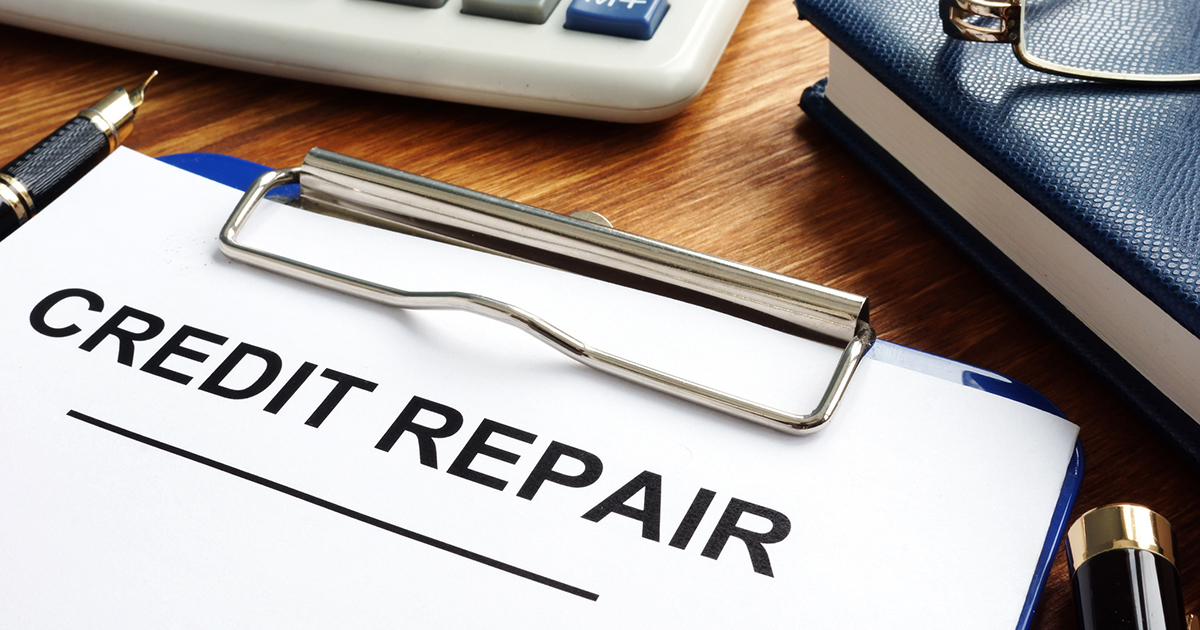If your credit score is lower than you’d like, there are steps you can take to repair your credit. But is paying a professional for credit repair services the best route? Keep reading to learn more about what credit repair is and decide for yourself if hiring a pro is the route for you.
What is a credit repair service?
Your credit score goes down anytime there are derogatory marks, or negative items on your credit report. Negative items include missed payments, foreclosure, repossession and collections. In order to repair your credit, you need to get negative items removed.
Credit repair services aim to reduce the number of negative marks by disputing errors on your behalf in exchange for a monthly service fee. While this saves you time (and potentially a few headaches), you’ll still need to track down supporting documents to support the dispute, so there is still effort needed on your part when paying for a credit repair service.
How can I repair my own credit?
The short answer is credit can’t be fixed immediately—it can take months, even years to make a big impact on your score. The good news is there are some things you can do right now (or right after you finish reading this blog post) to make improvements, some of which may boost your score within a few months.
Here are a few steps you can take to repair your own credit:
- Review your credit report. Request a copy of your credit report from one of the three major reporting agencies by going to com. Through April 2022, you can get a free report weekly. After that, you can get one free report from each agency per year, so aim to request one every four months to help you catch any errors or negative marks quickly.
- Highlight any negative mark. Print it out and highlight any negative marks or make note of the negative marks in a digital file. Next, identify the ones that you were responsible for and check for any that you do not recognize, and suspect are fraudulent charges.
- Dispute negative marks. Anything that is incorrect on your credit report can be disputed. Start by disputing an error on your credit report with the reporting agency. You’ll need to explain what you think is wrong and include copies of documents that back up your dispute. Remember, you should only dispute negative marks that are not accurate. If you missed a payment or your loan went to collections, that mark may take seven to 10 years to before it no longer shows up on your report.
- Create a budget. Budgeting can help you keep your expenses in check, so you make your payments on time. Payment history makes up roughly 35% of your credit score (it varies based on which model is used to calculate your score). Start with a basic list of your income and expenses and then transfer it to a spreadsheet, a budgeting app or use the free budgeting tools within online banking.
- Consolidate your debt. After you finish outlining your budget, you may notice that you are overspent each month (leading to more debt or the missed payments on your credit report). You can evaluate your spending in each category and identify ways to reduce spending. Another option is to combine all of your credit cards and loans into one, lower rate consolidation loan. This will help you pay less each month (since you are being charged less in interest) and can also help you remember your payment due dates (since you will have one loan to remember). Keep in mind that credit history factors into your score, so you may see a slight dip in your score when you close older loans and credit cards during consolidation. Rest assured, though, that as you make your payments on time and establish a positive payment history, your score will improve.
- Set up automatic payments. Consistently making your payments on time to improve your payment history helps repair your credit. Consider setting up automatic payments within online banking so you never miss a payment. You can do this for your loans and credit cards with Verve, and can use Bill Pay to set up automatic payments for bills like your utilities or cable bill, which also impact your credit score.
Learn more about what you can do to improve your credit score on our blog. You can also meet with a certified financial coach for free at Verve to help set goals, gain more confidence and stress less about money. Learn more and schedule a financial coaching appointment here.






 Federally Insured by NCUA |
Federally Insured by NCUA |  Equal Housing Opportunity |
Equal Housing Opportunity |